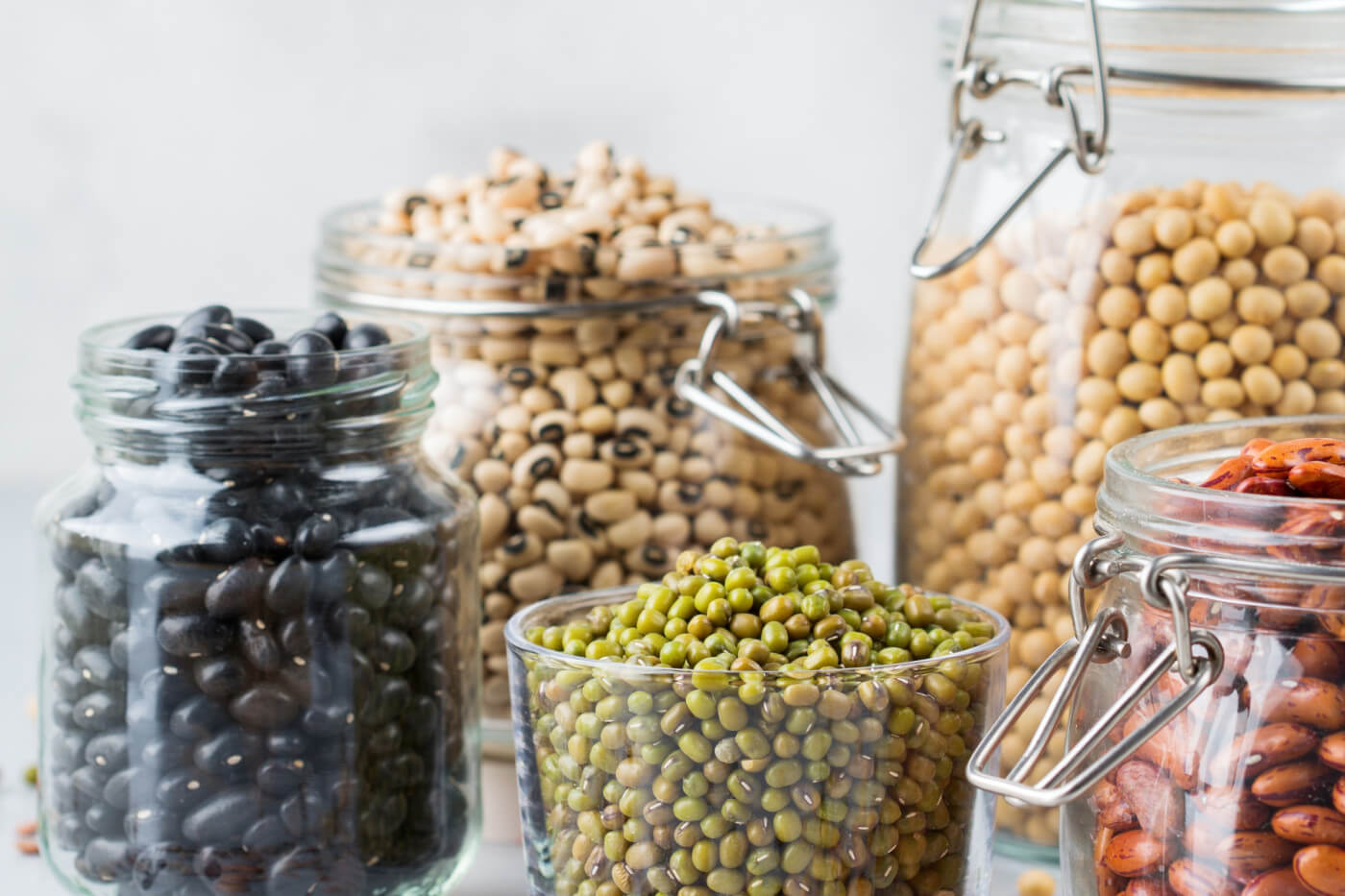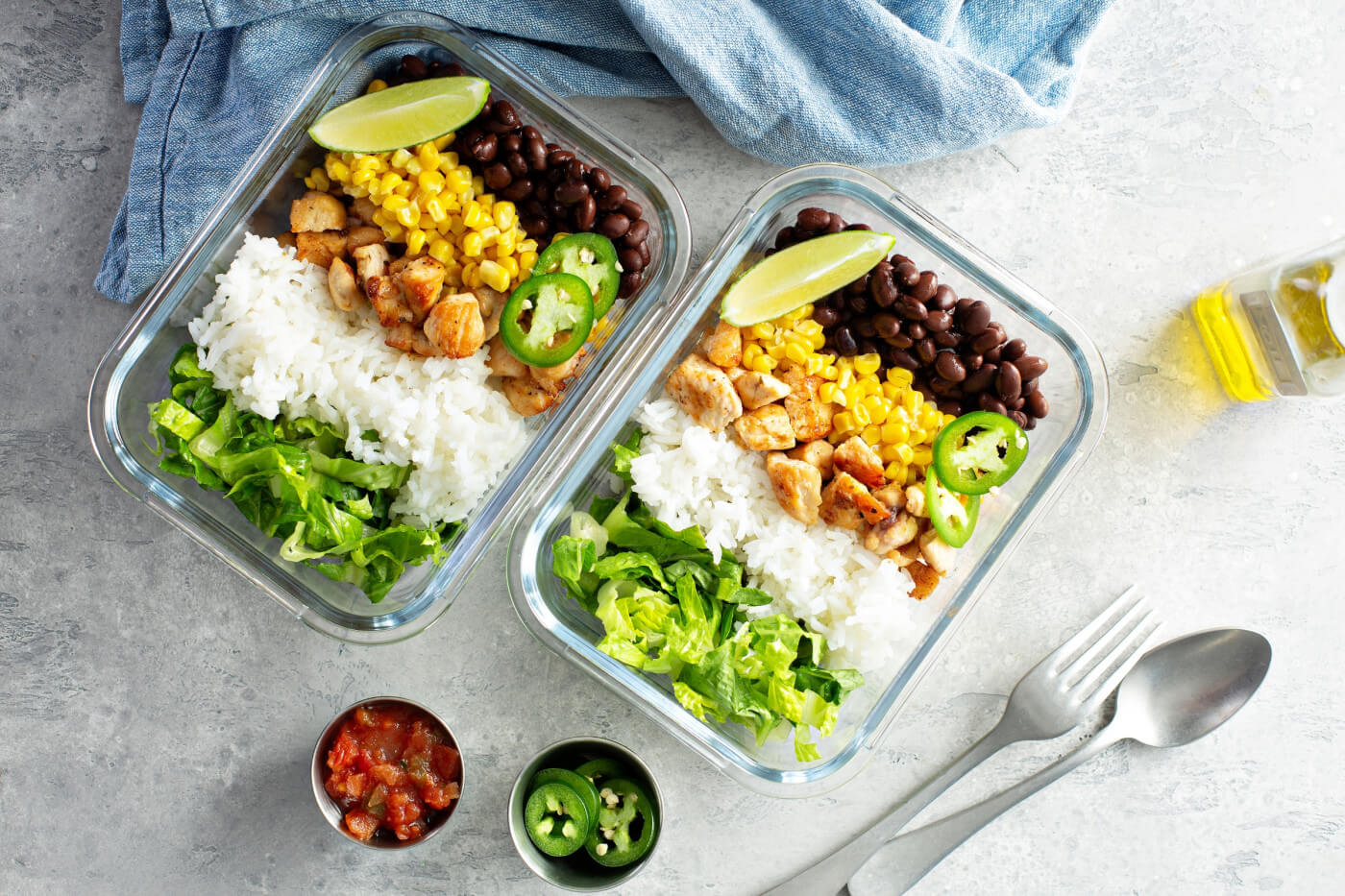Bariatric Meal Planning 101: Creating Balanced and Delicious Post-Bariatric Meals
 Dr. Samantha Stavola-Giaconia DCN, RDN, LD, FAND
Lifestyle
Dr. Samantha Stavola-Giaconia DCN, RDN, LD, FAND
Lifestyle
March 6th, 2024

Embarking on the post-bariatric surgery journey involves not only physical transformations but also a significant shift in dietary habits. Crafting balanced and delicious meals becomes crucial for sustaining the newfound health and ensuring a positive post-surgery experience. In this blog, we'll explore the essentials of bariatric meal planning for individuals who have undergone weight loss surgery, providing practical tips and insights to help create meals that are not only nutritionally sound but also satisfying to the taste buds. By understanding your individual needs, prioritizing key dietary components, and embracing creativity in the kitchen, this guide will empower you to navigate your post-bariatric journey with confidence and maintain a sustainable, healthy relationship with food.

Understanding Nutritional Requirements:
After weight loss surgery, the body undergoes changes that necessitate careful attention to nutritional needs. It's essential to focus on obtaining sufficient protein, vitamins, and minerals while limiting the intake of certain food groups. Consulting with a registered dietitian (RD) or nutritionist can provide personalized guidance based on your individual requirements and preferences.
Some key aspects your RD or nutritionist will consider include:
Post-surgical stage:
Nutritional needs differ depending on the type and timing of your weight loss surgery. Your bariatric meal planning will be tailored to the specific limitations and recovery timeline of your individual case.
Micronutrient deficiencies:
Bariatric surgery can increase the risk of deficiencies in certain vitamins and minerals, such as iron, calcium, and vitamin B12. Your RD/nutritionist will assess your individual risk factors and recommend appropriate supplements or dietary adjustments to address potential deficiencies.
Underlying health conditions:
Existing medical conditions like diabetes, high blood pressure, or kidney disease need to be factored into your dietary plan. Your RD/nutritionist can help you make informed choices that support your overall health and manage any co-existing conditions.
Food preferences and cultural considerations:
No single "one-size-fits-all" approach exists. Your RD/nutritionist will work with you to incorporate your cultural dietary preferences and cultural practices, ensuring your plan is realistic, sustainable, and enjoyable in the long run.
By consulting with a qualified healthcare professional, you can gain a deeper understanding of your unique nutritional needs and develop a personalized plan that empowers you to make informed dietary choices.

Embracing Protein as the Foundation:
Protein is a key component in post-bariatric meal planning. After bariatric surgery, maintaining muscle mass is essential for preserving your metabolism and preventing muscle loss, which can negatively impact your overall health and recovery. Protein is a crucial macronutrient that acts as the building block for your body, supporting muscle maintenance, promoting satiety, reduces cravings, and it helps to boost your immunity.
When selecting protein for your bariatric meal plan, opt for lean protein options like:
- Poultry: Skinless chicken breasts, turkey breasts
- Fish: Salmon, tuna, cod
- Eggs: Whole eggs, egg whites
- Tofu and tempeh: Plant-based protein options for vegetarians and vegans
- Legumes: Lentils, beans, chickpeas
Experiment with different cooking methods and creative culinary techniques to keep your post-bariatric surgery meals exciting:
- Grilling and baking: Healthy and flavorful cooking methods that retain nutrients.
- Slow cooking: A convenient and delicious way to prepare tender, protein-rich meals.
- Stir-frying: A quick and versatile method to create protein-packed dishes.
Prioritize protein and incorporate the tips above to create the foundation of your bariatric meal planning process.

Prioritizing Fiber-Rich Foods:
Fiber, the unsung hero of a healthy diet, becomes even more crucial after bariatric surgery. This complex carbohydrate acts like a magic wand for your digestive system, offering a multitude of benefits including, digestive health and regularity, enhanced satiety, reduced cravings, and blood sugar control. When doing your bariatric meal prep, be sure to choose essential dietary fiber options like:
- Fruits and Vegetables: Aim for a rainbow of fruits and vegetables, focusing on options like berries, apples, pears, leafy greens, broccoli, and carrots.
- Whole Grains: Choose whole grains over refined grains. Opt for brown rice, quinoa, whole-wheat bread, and oatmeal.
- Legumes: Beans, lentils, and chickpeas are excellent sources of both protein and fiber.
- Nuts and Seeds: In moderation, nuts and seeds can add a satisfying crunch and fiber boost to your meals.
When introducing fiber, it is important to increase your intake slowly to allow your body to adjust and prevent discomfort. Staying hydrated is also important so be sure to drink plenty of water. When you prioritize fiber rich foods into your post bariatric surgery diet, you will be successful at nourishing your gut, improving your digestive health and overall well being after surgery.
Portion Control and Mindful Eating:
Following weight loss surgery, portion control and mindful eating become essential tools for the success of your bariatric meal planning. They empower you to make conscious choices about what and how much you eat, fostering a healthy relationship with food and supporting your long-term health goals.
Portion Control:
- Utilize smaller plates and bowls: This creates the illusion of larger portions, tricking your brain into feeling satisfied with a smaller amount of food.
- Pre-portion single servings: Divide meals and snacks into individual containers beforehand to avoid the temptation of over serving in the moment.
- Read food labels: Pay attention to serving sizes and calorie information to understand appropriate portions.
- Focus on quality over quantity: Choose nutrient-dense foods so you feel satiated with a smaller volume.
Mindful Eating:
- Eat slowly and savor each bite: Put down your utensils between bites, chew thoroughly, and pay attention to the taste, texture, and aroma of your food. This allows your body to register satiety cues and prevents overeating.
- Minimize distractions: Turn off electronics and avoid multitasking while eating. This allows you to focus solely on your food and body signals.
- Practice mindful hunger and fullness cues: Tune into your body's natural hunger and fullness signals. Start eating when you feel genuinely hungry and stop when you reach comfortable satiety, not complete emptiness.
- Engage in mindful stress management: Find healthy ways to manage stress, as emotional eating can lead to overconsumption.
Examples:
- Breakfast: Instead of mindlessly finishing a large bowl of cereal, practice mindful eating by pouring a measured portion and savoring each bite. Pair it with a protein source like Greek yogurt to enhance satiety.
- Lunch: Opt for a pre-portioned salad with lean protein like grilled chicken or fish, focusing on chewing each bite slowly and mindfully.
- Snacking: Instead of grabbing a whole bag of chips, portion out a small amount in a bowl, allowing you to be more aware of how much you're consuming.
By incorporating these strategies into your daily routine, you'll develop a healthy and sustainable relationship with food, fostering long-term success in your post-bariatric journey.

Creative and Flavorful Meal Ideas:
Creating delicious post-bariatric meals involves experimenting with flavors and textures. Spice up your meals with herbs, spices, and low-calorie condiments to enhance taste without compromising nutritional goals. Explore diverse cuisines, and don't be afraid to try new recipes that align with your dietary requirements.
Need some creative bariatric meal plan ideas: Here are a few to inspire you:
Mediterranean Shrimp Skewers with Lemon Herb Marinade:
Thread juicy shrimp with colorful bell peppers, red onion, and cherry tomatoes. Marinated in a blend of olive oil, lemon juice, garlic, oregano, and thyme, these skewers are grilled to perfection, offering a protein-packed and flavorful meal.
Thai Peanut Tofu Stir-Fry:
Cubes of pan-fried tofu are tossed with broccoli florets, shredded carrots, and red bell peppers in a flavorful peanut sauce made with low-sodium soy sauce, lime juice, ginger, and a touch of honey. This stir-fry is a plant-based protein and fiber powerhouse, packed with vibrant flavors and textures.
Salmon with Roasted Brussels Sprouts and Quinoa:
Baked salmon fillets are paired with roasted Brussels sprouts tossed in olive oil, balsamic vinegar, and a sprinkle of Parmesan cheese. A bed of fluffy quinoa completes this protein-rich and fiber-filled meal.
Lentil Soup with Whole-Wheat Bread Croutons:
A hearty lentil soup, simmered with carrots, celery, and tomatoes, is packed with protein and fiber. Topped with a sprinkle of homemade whole-wheat bread croutons, this soup provides a warm and comforting meal that is both nutritious and satisfying.
Remember, these are just a few examples of endless possibilities. Allowing yourself to be creative in the kitchen and trying out new recipes that meet your dietary needs will ensure your meals after bariatric surgery are both nutritious and delicious.
Conclusion: Embracing Sustainable Bariatric Meal Planning
Navigating a post-bariatric lifestyle requires dedication and commitment. It is important to realize that eating after weight loss surgery is not just about adhering to restrictive meal plans; it's about building a sustainable and enjoyable relationship with food. By understanding your individual needs, prioritizing key dietary components, and exploring creative culinary possibilities, you can savor delicious meals, optimize your health, and thrive on your path to long-term well-being.
Remember, you are not alone in your journey. Consult with your healthcare professionals and explore resources like our informative blog posts and recipes.
To further ignite your culinary juices and get inspiration for your bariatric meal planning journey, tune in to our monthly cooking show, "Cooking with Celebrate". Join us as we delve into the world of delicious and nutritious post-bariatric meals, offering easy-to-follow recipes, creative cooking techniques, and valuable tips to inspire you in the kitchen. Together, let's make eating enjoyable and empower you to thrive in your new journey to a healthier you!





